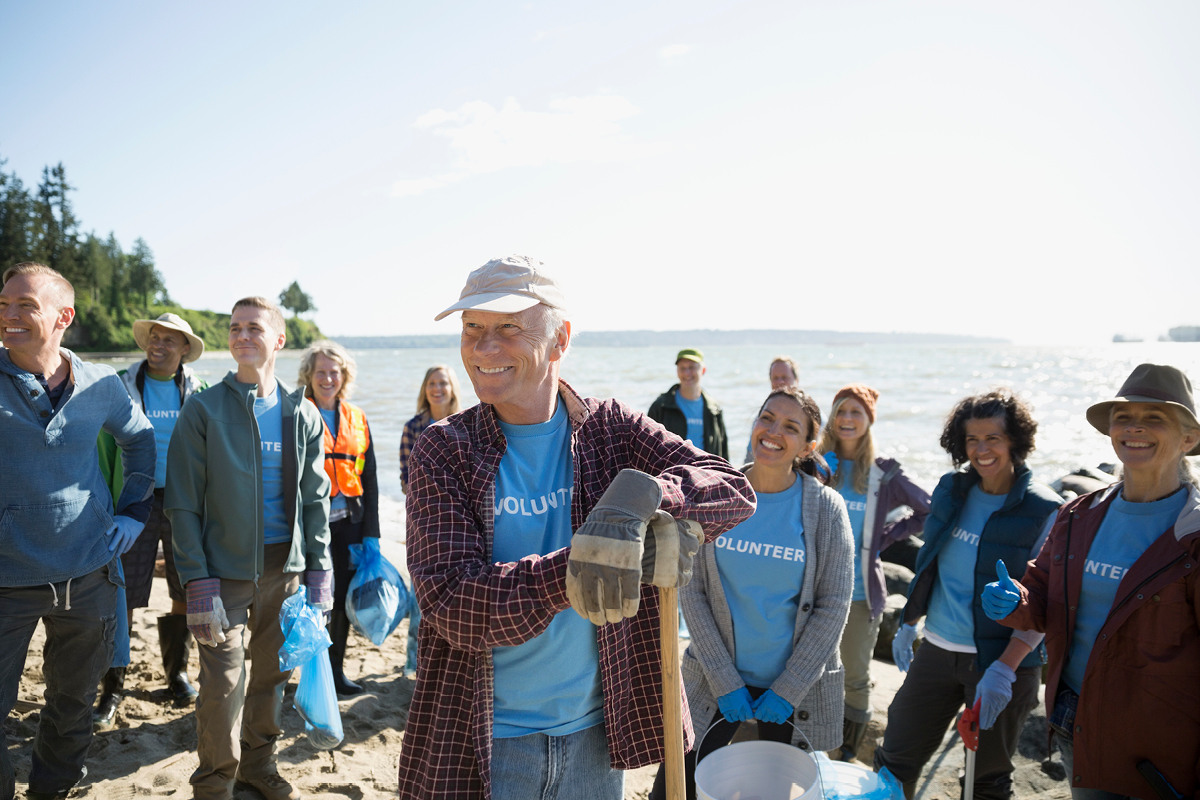Volunteering is the backbone of the Australian social and community sectors, with people contributing their time, money and care for countless causes.
In 2014, 5.8 million Australians – 31 per cent of the population aged 15 years and over – participated in voluntary work.
Over 12 months, this contributed 743 million hours to the community, resulting in the provisions of myriad unpaid services, and improved the wellbeing of innumerable volunteers, contributing to happier, more satisfied, and purpose-driven individuals.
At Stepping Stone House, we currently have 166 volunteers – with up to 60 different roles that individuals can take on to support our children and young people.
From personal mentors, driving mentors, event managers and fundraisers to adventure role models – qualified in activities like abseiling, alpine sports and hiking – these individuals link together to form our passionate and dedicated support network, contributing to our residents’ strength, resilience and sense of self-worth.
We have calculated the value of volunteered hours equates to $95,000 per annum, which is a lot for a small charity like Stepping Stone House. However, the social impact is not as quantifiable and the inspirational affect they can have on young people can be profound.
For example, we have seen the volunteers’ influence in the careers our young people have chosen for themselves. We recently had one of our driver mentors donate a V8 driving experience to one of our youth for his twenty-first birthday. That memory will stay with both of them for ever!
So what do the volunteers get out of their contributions? Contributing your unpaid time and energy to a cause you are passionate about, raising awareness of a pertinent issue, or just lending a hand to someone in need, all make an impact beyond the direct actions of volunteering, and contribute to a more socially aware and community-minded society.
The link to wellness
Studies also show that volunteering is good for mental health, as you are able to directly instigate change and with that comes that satisfaction of seeing someone else grow and improve. This can also allow for a greater sense of connection, enhancing your perspective, and taking pride in your work.
As such, the link between volunteering and wellness is the same as for those employed in social sectors: the greater sense of personal satisfaction that comes with helping others.
In my experience, this tends to come with age, as I have had the opportunity to meet many generous mature Australians in my work. But it can also be found in the younger generations.
There is a drive for ‘deeper engagement’ than just one’s day job or workplace, and this is something that can be utilised by not-for-profits to foster their volunteer community, if done right.
Emotional investment
At Stepping Stone House, we put great effort into linking our volunteers with their sense of purpose, to ensure that it’s not just our residents and staff who benefit from their efforts, but the volunteers as well.
When people attend our tours and working bees, they see the effects of their efforts first-hand, which leads to greater emotional connection and sense of worth.
Harnessing this as a not-for-profit ensures your volunteers to engage with your organisation on a personal level, which drives emotional fulfilment – and further efforts.
For example, we see the greatest engagement in those who work most closely with our residents, because these direct-support volunteers are actually witnessing our residents go through their personal development.
Our driver mentors in particular spend up to 120 hours teaching our kids to drive, which is plenty of time to get to know someone.
For donors who may not necessarily see the young people’s development first-hand, we articulate our residents’ achievements in our Annual Report, as well as the more specific measures in our Annual Impact Report, which keeps everyone updated on the continuing effects of their generosity.
Be it through contributing your time, effort or money, volunteering is inherently good for you.
With a direct correlation to good mental health through socialising, working towards a common goal, and improving the lives of other people, volunteering is a wealth of sustainable and fulfilling opportunities that can be developed alongside your work obligations, or directly through your business.
In the end, it just makes you feel good.







